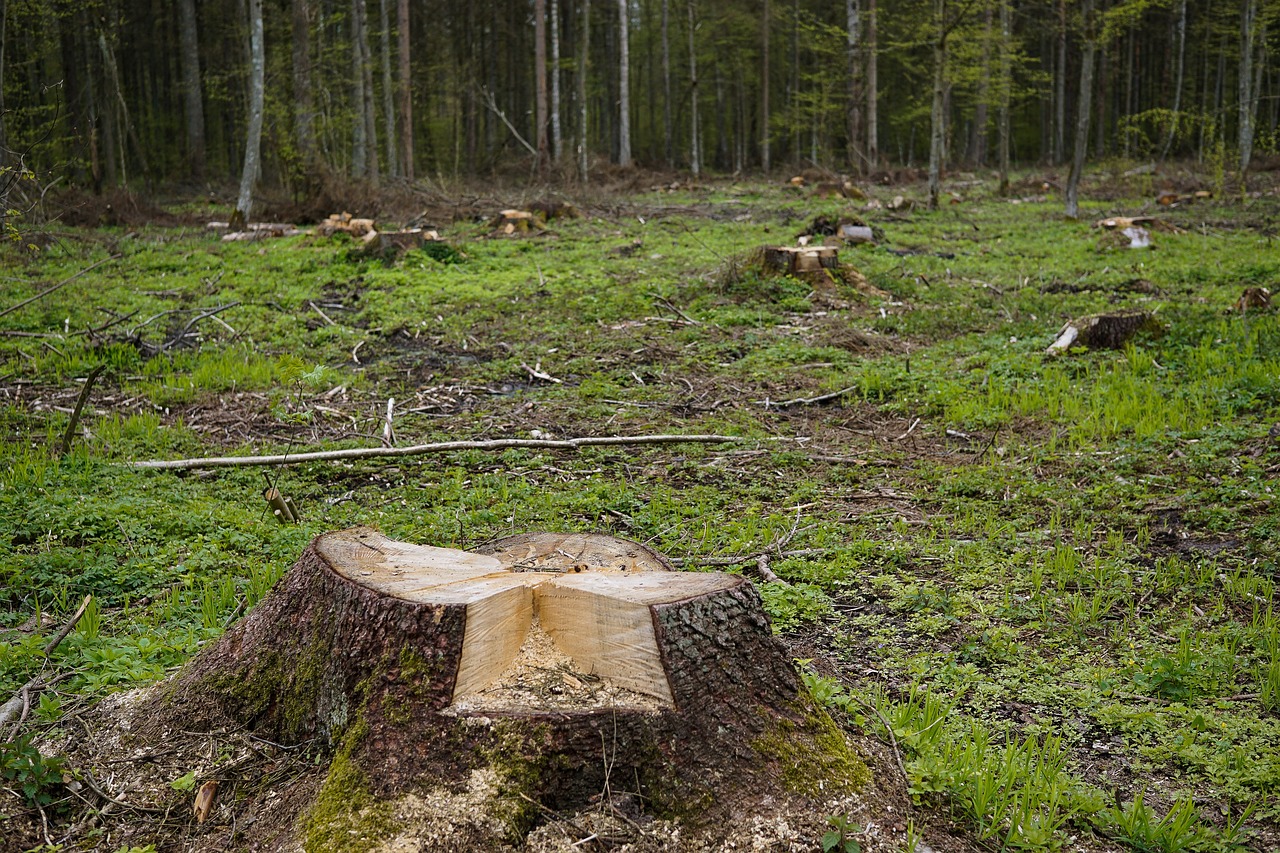
Deforestation involves stripping a piece of land of its trees and plants.
Deforestation is the action and effect of deforesting ( stripping land of its trees and plants ). This process of disappearance of forest masses is usually produced by human action through felling and burning.
Deforestation - from English deforestation - is generally driven by the logging industry , paper manufacturers, the construction of infrastructure (such as roads or housing) and agricultural enterprises (which take advantage of the soil to plant the most profitable crops and market them). . Latin America and West Africa are the regions most affected by deforestation, although the phenomenon exists in all parts of the world.
Deforestation and the environment
The disappearance of forests and jungles constitutes a serious environmental problem. The decrease in the number of trees produces imbalances in the climate , alters the habitat of animals and reduces the planet 's capacity to absorb carbon dioxide and transform it into oxygen .
In recent years, international society has become more aware of the problem of deforestation. Social pressure on the authorities caused, in many regions, logging to stop and forests to be considered ecological and tourist resources of great value.
Responsible and sustainable tourism , in fact, is a way of generating income from forests and jungles. This is the main argument of those who oppose deforestation, without taking into account, of course, that the main reason for this opposition is ecological and not economic (a forest is necessary beyond its capacity to generate income).

Due to deforestation, many animals see their natural habitat modified.
Derived problems
The problem of deforestation not only lies in the sacrilege of hundreds of plant species but also results in the death of animal organisms for whom the existence of that green space was essential for survival . To give a very simple example. If squirrels live in a forest and all the trees are cut down, they will have to emigrate or they will die and their predators will suffer the same fate. It is worth mentioning that in each forest there are thousands of species, many of which have not even been discovered by humans. Due to deforestation, many disappear from the planet every day.
According to statistics, in Colombia, for example, more than 8093.7 m² are deforested and, if this continues, in just 40 years the country will have no forests . Likewise, tropical forests , scattered in various places on the planet, suffer daily and continuous cutting; Every day trees hundreds of years old are felled along with younger ones and hollow spaces are left in the forests. But this is not the only problem.
One of the importance of forests is their ability to neutralize tons of carbon dioxide , that gas from the waste caused by the manufacture of fossil fuels. With uncontrolled deforestation, the ability to reoxygenate the environment decreases and this results in a reckless increase in environmental pollution which, as expected, leads to a host of other ecological problems.
Among the problems caused by deforestation is desertification or desertification (a process by which lands extremely rich in life lose their fertility, turning into deserts). In general, it happens that many hectares are cut down with the aim of establishing a livestock business. In this way, the space that was previously covered with vegetation is now trampled daily by livestock and loses all its fertile value ; making future life growth impossible.
There are other problems derived from deforestation, such as increased global warming , climate destabilization, and increased ecological problems in the area.
